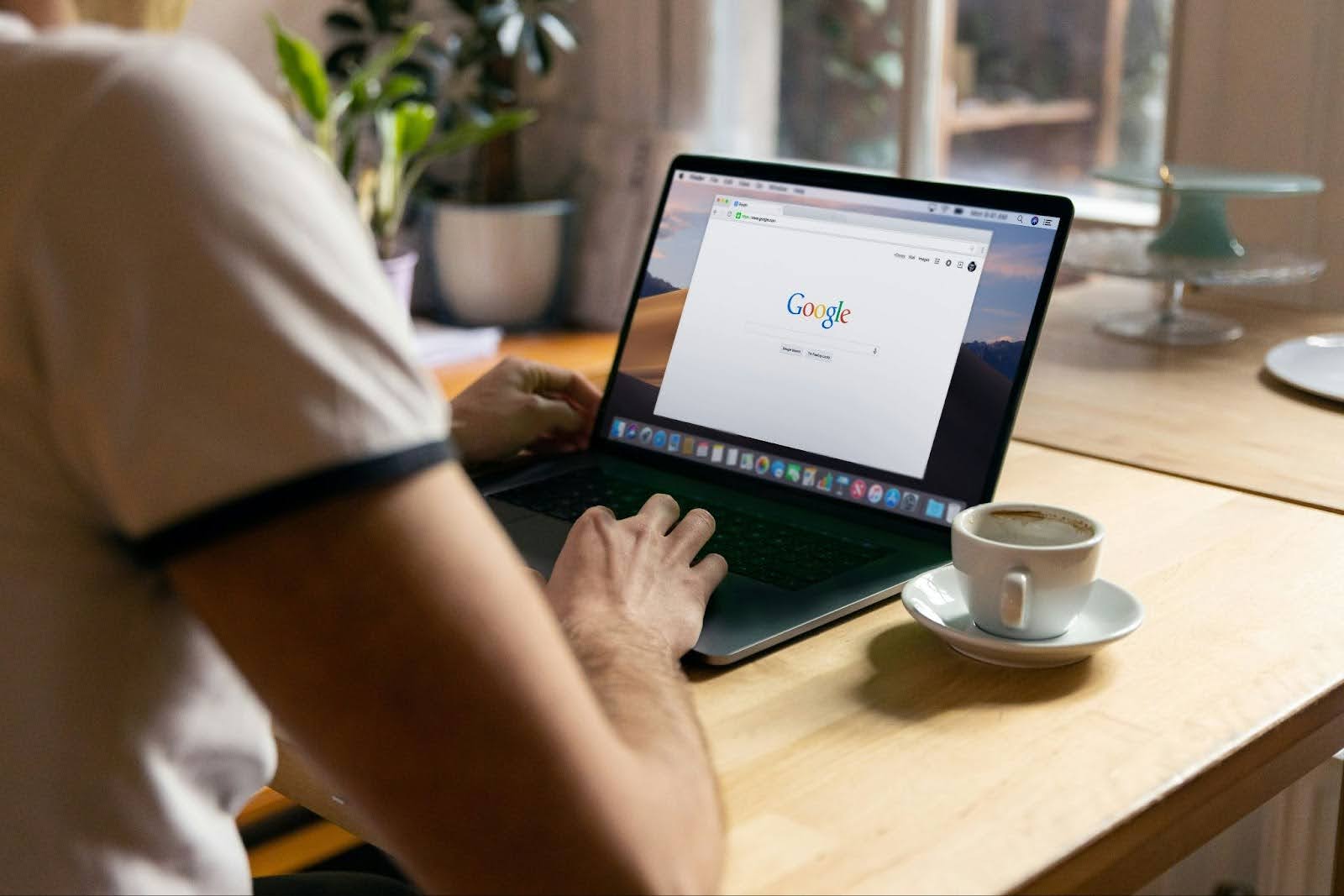I Hate Social Media: A Guide To Taking A Break

How often have you had this happen to you? You’re in the middle of working on something important and you decide to take a brief break to check social media. You plan on only spending five minutes browsing your feeds then you’ll get right back to work.
Of course, it doesn’t turn out that way.
You end up spending forty minutes browsing Facebook and Reddit, wasting valuable time perusing memes and videos of people slipping and falling. Finally, you get back to work, frustrated at how much time you wasted. What was supposed to be a quick break turned into almost an hour of lost time.
Or maybe you find yourself constantly checking your phone, addicted to that little dopamine hit that happens every time someone likes one of your posts. You can’t seem to unglue yourself from your phone, and you find yourself wasting numerous hours every week on social media.
If either of these scenarios describe you, you’re not alone. The average person spends a whopping 116 minutes per day on social media — almost a full two hours.
Many people, upon realizing how much time they’re spending on social media, push back, hoping to reclaim some of their time. But it’s not easy. Social media is addicting. It’s enjoyable to see the like count steadily climb on an Instagram post. They want to make changes to their social media usage but don’t know how.
We’re here to help.
If you’ve ever found yourself hating social media and wanting to take a break, this post is for you. We’re going to break down why people often hate social media, as well as how to effectively take a break.
Ready? Let’s dive in.
Why Do People Sometimes Hate Social Media?
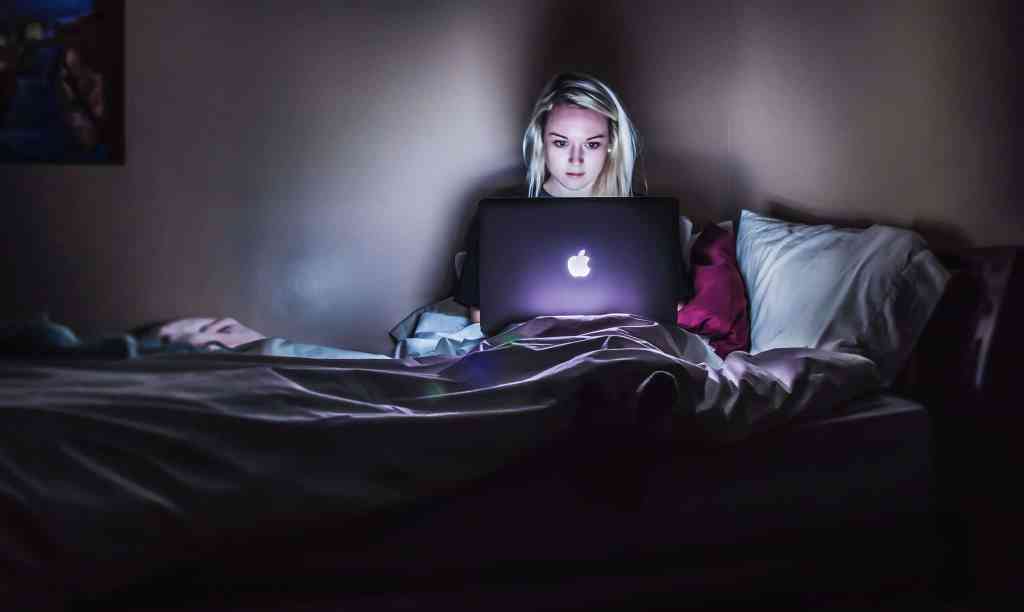
When social media first came on the scene, it was supposed to change the world. Suddenly, we could be “friends” with hundreds, if not thousands of people. We could keep up with our friends from high school and see what our college friends were doing after they graduated. We had instant access to developing news stories and could keep up with the times without having to read a newspaper. We could even keep up with the “private” lives of celebrities!
But over time, people have become decidedly less enthusiastic about social media. The more we’ve learned about social media, the more we’ve discovered that it’s not the technological utopia that we were promised. In fact, there are times when it’s decidedly a nightmare.
Research has shown that there are a number of distinctly negative effects of using social media on a regular basis.
Mental Health
Social media has been linked to numerous serious mental health problems, especially in young people. These health problems include:
- Low self-esteem
- Loneliness
- Depression
- Social phobia
- Suicidal thoughts
As if that’s not bad enough, a recent study showed that using Facebook causes a distinct dip in moment-by-moment happiness and an overall decrease in life satisfaction. Participants in the study were texted five times throughout the day and asked how they were feeling in the current moment, as well as how satisfied with their life.
The study revealed that the more a person used Facebook, the less satisfied they were with their life and the more unhappy they were. The study also showed that the more face-to-face interactions a person has, the happier they are.
Clearly, social media is hurting our mental and emotional health. It’s causing us to be significantly less satisfied with our lives. That alone should be a reason to take a break from social media. But there are more problems.
Social Comparison
Theodore Roosevelt famously said, “Comparison is the thief of joy.” Nowhere is this more true than on social media.
This shouldn’t come as a surprise, but research has also shown that the more a person uses social media, the more they compare themselves to others. This constant comparison game fosters envy, jealousy, resentment, and frustration.
This is to be expected, given that most people only share the highlights of their lives on social media. Everyone’s life looks like roses and butterflies on Facebook.
When comparing your actual life to another person’s social media feed, it can be easy to think that their life is going exceptionally well and your life isn’t so good.
Lost Sleep
Social media is a never-ending rabbit hole. One minute you can be scrolling through your Facebook feed, and the next minute you’re watching videos of UFOs in the night skies. Forty-five minutes later you find yourself knee-deep in conspiracy theories on Reddit. Two hours later you’re reading the Area 51 Wikipedia page.
If you do all this at 11 pm, you’re sacrificing precious sleep.
And it’s no secret that sacrificing sleep dramatically hurts your overall performance in the following days. Most people need 7-9 hours of sleep, and if you consistently get less than that, you compromise your body’s ability to function effectively. Your productivity drops, your attention span wanes, your energy dips, your ability to recall information falters, and you even put yourself at risk of various diseases.
Social media has the unique ability to steal your sleep, which has significant consequences.
Wasted Time
As noted earlier, the average person spends a huge amount of time on social media every day. While it wouldn’t be correct to say that all this time is wasted time, it’s probably safe to say that a large portion of it is. After all, how many status updates and news stories and memes do you need to see in a single day?
If you’re not careful, it’s easy to spend hours every day on relatively trivial online activities (Harry Potter quizzes anyone?). Instead of spending time with friends and family, you spend time on Facebook, Twitter, Instagram, and Pinterest. Instead of getting outdoors and enjoying the sunshine, you stare at a small screen all day.
Social media can be a time thief if you’re not careful.
I Hate Social Media! How Do I Take Break?
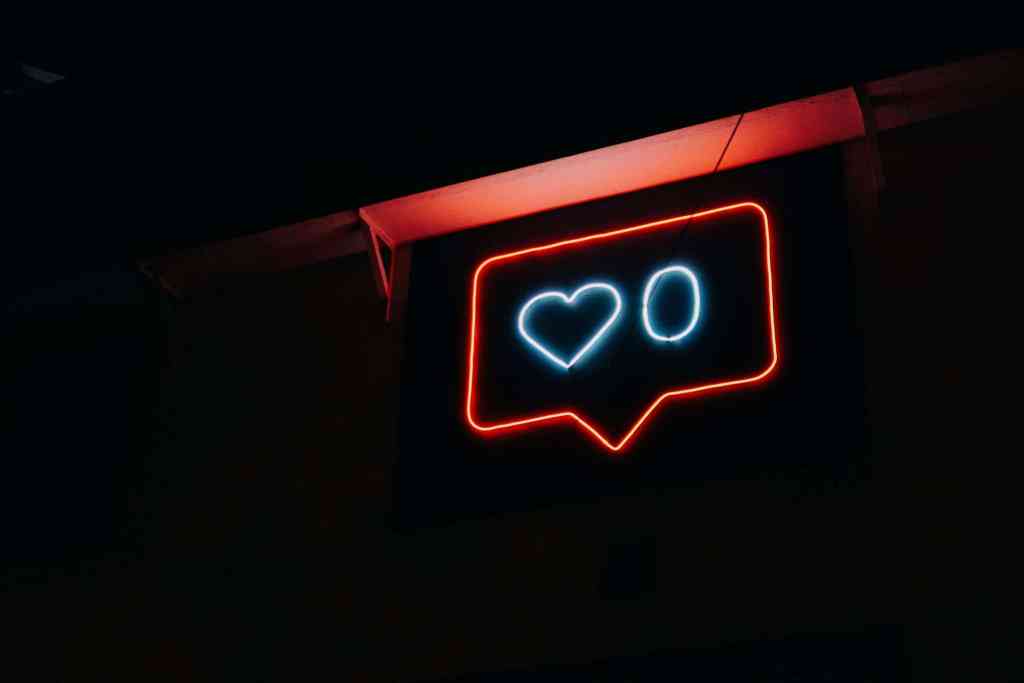
It’s one thing to hate social media. Having the willpower to actually take a break from it is something else altogether. So how do you actually take a break from social media?
Identify What You Hate About It
In order to actually stop using social media, you first need to determine what you actually hate about it. One way to do this is to think about your values and then evaluate whether your social media usage is in line with those values.
For example, let’s say you value time spent with friends and family. Is your social media usage helping you to live in alignment with that value? Or let’s say that being productive is a high value for you. Does the time you spend on social media make you more or less productive?
Once you identify your values, you can effectively determine whether social media is helping or hurting you. If it’s hurting you, you can use those reasons as motivation to take a break from social media.
Determine The Right Amount Of Time To Be On Social Media
To be clear, there’s no “right” amount of time to spend on social media. It’s not like there’s a hard and fast rule for the proper number of minutes to spend on Facebook or YouTube.
But your goals and values can help you determine a wise amount of time to spend on social media. Like a compass, your goals and values can guide you into a healthy amount of time on social media.
Determine what you want to achieve and what matters most to you. Then determine the ways that social media is inhibiting you from reaching those goals and living by those values.
Finally, resolve to be intentional about the way you use social media. Resolve to only use social media in ways that support your overall goals and values.
Quit Social Media? Detox From Social Media? Or…?
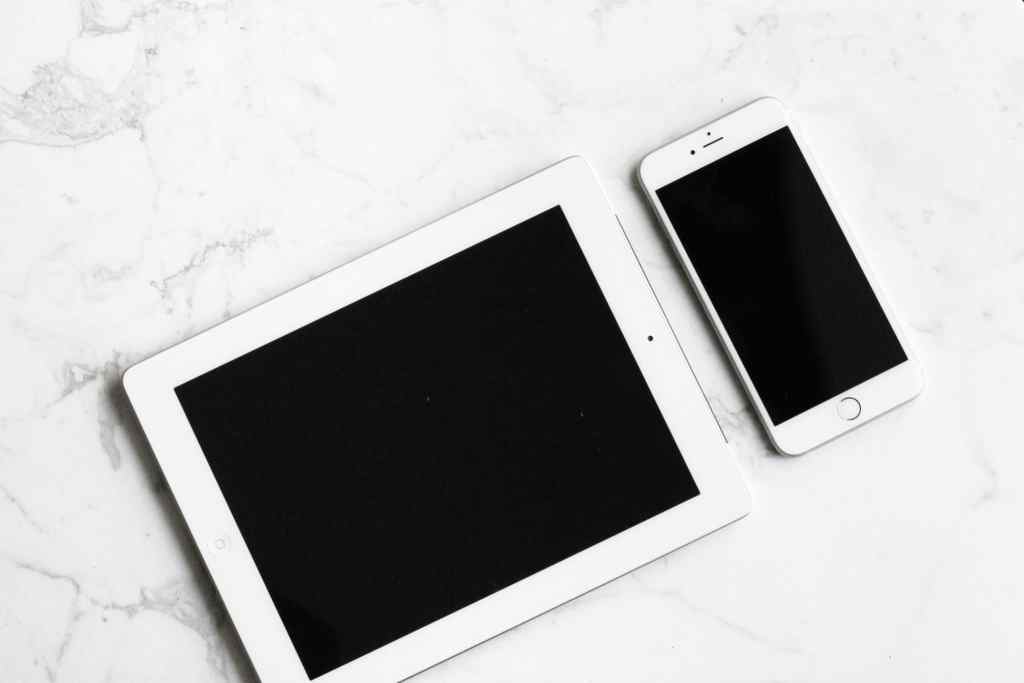
The above points raise a critical question: what’s the best approach to social media?
Should you quit? Take a break? Do a detox? Let’s look at each one.
1. Quitting Social Media
When you’re deep in the throes of frustration over social media, it can be easy to feel like you should quit altogether. There’s something appealing about the cold turkey approach.
And it’s true that quitting social media does have some pros.
- You can use what would normally be social media time for other activities
- You’re not constantly tempted to compare your life to other people’s
- You’re not regularly glued to your phone
- You can be more productive
But there are also a number of cons to totally quitting social media.
- You can’t keep up with friends as easily
- You can’t share important information with your circle of friends
- It’s not as easy to stay abreast of developing news
- It’s harder to stay informed about high-profile people you follow (celebrities, athletes, etc.)
Clearly, there are some benefits to completely quitting social media. But for most people, completely quitting social media isn’t necessary.
2. Detox From Social Media
Detoxing from social media simply means taking a break from it. Just as a food detox involves taking a break from eating particular food groups, so a social media detox involves taking a break from social media.
The pros of doing a social media detox are numerous.
- You can freshly evaluate your social media usage
- Your phone usage drops dramatically, allowing you to focus on other activities
- You can make time to rekindle relationships with friends and family
- You get to take a break from social media without totally giving up the benefits
Of course, there are some cons to only temporarily taking a break from social media.
- You may miss relevant notifications
- You’ll need to find alternative ways of getting the news
- You may initially find yourself missing social media interactions
For most people, a social media detox is healthy. It allows you to reevaluate your priorities, focus freshly on what matters most, and clear your brain from digital clutter.
3. Moderate Usage
There is a third way to use social media — a hybrid between totally quitting social media and just doing a detox. You can use social media moderately and intentionally, relying on tools like Freedom to help you take shorter breaks from it. This has advantages of both of the above options.
Your values will help you determine the best way to use social media in a moderate fashion. For example, say that one of your values is spending time with family. Using a tool like Freedom, you can block social media during specific times and then spend that time with your family. If you try to use social media, you simply won’t be able to. Your attention will go back where it belongs: to your family.
Or maybe you want to ensure that you’re always productive at work between the hours of 9 am – 12 pm. By blocking social media during those hours, you eliminate the temptation to skim Reddit or watch a YouTube video. You also can be highly productive during those hours since you’re not able to use social media.
The advantage of using social media moderately is that you can focus on doing the things that matter most to you while still getting to use social media at times. In other words, you’re much more intentional about your social media usage, leading to a more productive, happier life.
Using Freedom To Moderate Social Media Usage
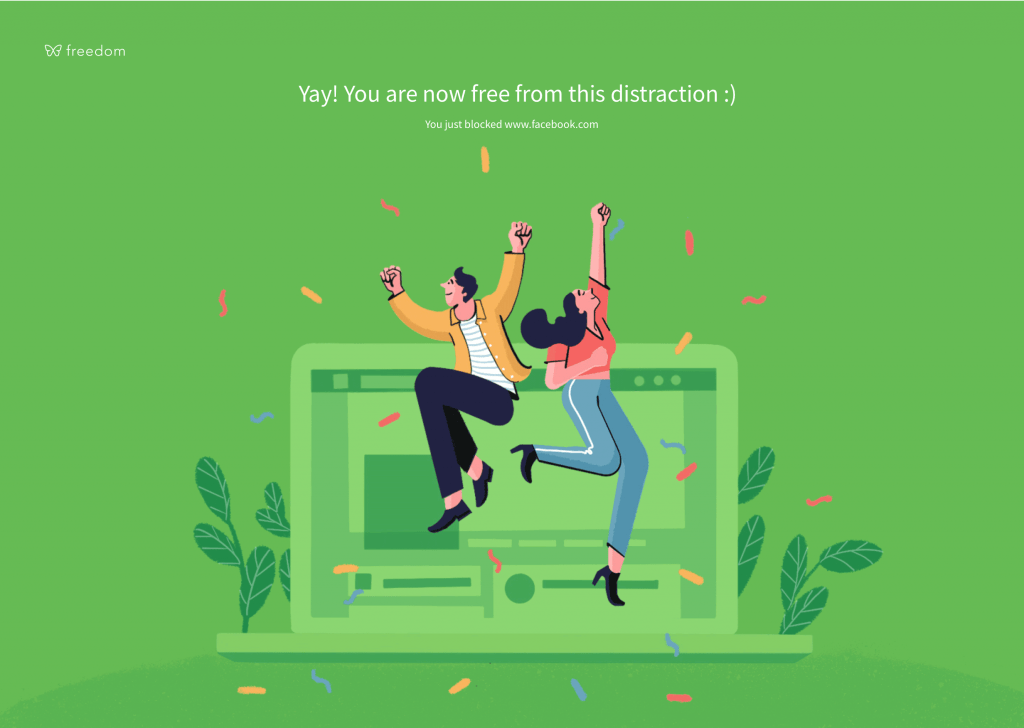
So how can you use Freedom to moderate your social media usage? There are several ways you can use it depending on what you want to accomplish.
There may be times when you really want to focus and you don’t want to be distracted by the internet at all. During these times, you may want to block the entire internet. This will keep you from accessing any websites and force you to focus 100% on the task at hand.
To block the internet, simply go to your dashboard and check All Websites in the Block these distractions, section. Select how long you want your session to last, check the box beside All Websites, click Start, and then get to work.
There are other times when you need to access the internet but want to block social media. To do this, you just need to create a blocklist that contains all the sites you want to block.
You can select from predetermined groups of websites, such as Time Wasters, select individual websites like Facebook or Instagram, or any other site that you want to block that’s not on the list.
Once you’ve selected the specific sites you want to block, set your time period and then get to work.
You can also use Freedom to create a digital detox for yourself. For example, let’s say you want to take a break over a weekend or vacation.
Select Start Later, then select when you want your session to start and when you want it to end. You can schedule up to a 24-hour window this way.
Or let’s say you want to schedule a recurring break from social media each weekend. Simply select Recurring Session. Then select which days you want to block specific websites, as well as how long you want to block the websites.
Limit Your Time, Regain Your Life

Social media does present a quandary. On the one hand, it can be a huge time waster, can keep you from achieving the things you want, and can lead to mental and physical health issues if it’s not kept in check. On the other hand, it allows you to connect with friends, stay abreast of news, be entertained, etc.
And while there is no single solution that is best, everyone should seek to be intentional about the way they use social media. For a few people, totally quitting social media may be the solution. For most people, the solution is to use social media strategically at appropriate times during the day.
The key is intentionality. When you use social media intentionally, you can still focus on the things that matter, spend time with the people you care about, and live a productive rich life.


